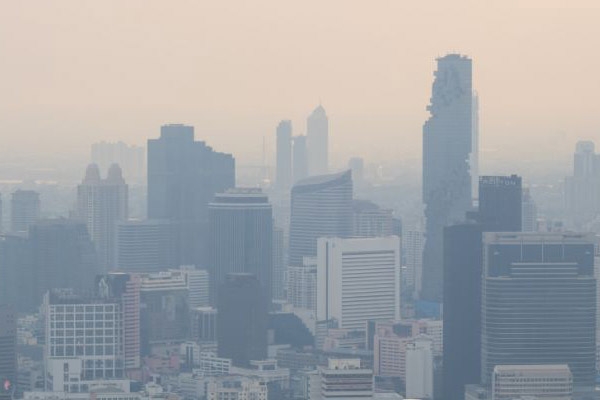
(Image source from: Canva.com)
As winter approaches, dangerous air quality is once again prevailing in northern India. According to the report, urban centers were mostly affected and several cities were covered by a thick layer of smog, affecting not only public health but also daily life. Smog is a form of air pollution that creates a hazy atmosphere, reduces visibility and affects air quality. “Smog” was originally used in the early 20th century to describe a mixture of smoke and fog. This term refers to the pollution caused by the burning of coal. It is particularly common in industrial areas, the report says. While respiratory and cardiovascular diseases caused by pollution are widely recognized, the less discussed effects of pollution on productivity are equally concerning. Long-term exposure to polluted air can reduce concentration, energy levels and overall efficiency, creating significant challenges for individuals and businesses.
Although the exact mechanisms by which air pollution affects concentration, energy and productivity are not yet fully understood, these effects are often accompanied by repeated respiratory damage and associated inflammation. These illnesses cause symptoms such as colds, coughs and general weakness and often disrupt sleep patterns. Lack of sleep negatively impacts your concentration, energy levels, and overall productivity. Air pollution can also directly affect the brain, causing neurotoxicity. Recent studies have found a strong link between exposure to various air pollutants and cognitive decline. Significantly, a significant association was observed between exposure to nitrogen dioxide (NO2) and black carbon (both traffic-related air pollutants) and cognitive decline. These results highlight the important role of pollution in cognitive aging and the need for strategies to reduce these impacts. Especially for people with desk jobs who spend most of their time indoors, indoor air purification measures are a relief, but not a panacea.
These measures have limited effectiveness for vulnerable groups, such as: B. Children with developing brains and those who frequently live outdoors, such as farm workers and maternity workers. Air purifiers are only effective indoors and cannot be used outdoors. Organizations and educational institutions can improve the air quality in their offices by using air purifiers and plant combinations. This offers a small additional advantage. Regularly screening employees for cognitive impairment, providing workplace rest opportunities, and encouraging the adoption of green building designs are also recommended strategies to reduce the impact of pollution on productivity.



















